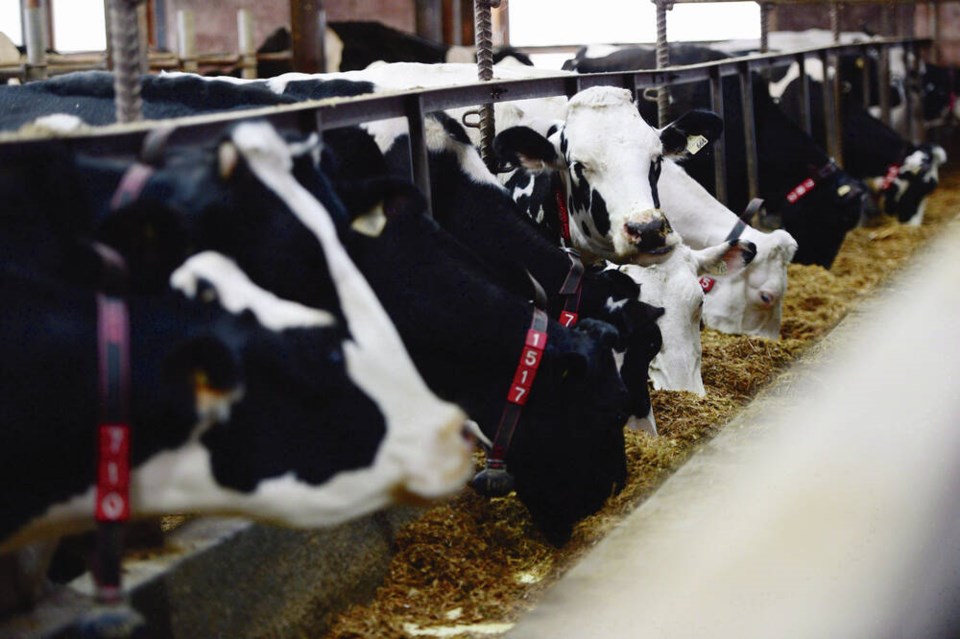COP15 on biodiversity has brought thousands of delegates to Montreal to address critical issues our planet is facing. Related to food systems, delegates are discussing agroecology, food-systems intensification and consideration of fisheries in food security.
One issue catching some people’s attention is diet and overconsumption. That’s right, food is being discussed in Montreal.
Many believe that food systems are the single largest cause of biodiversity loss on land, and the pressure our diets put on our biodiversity is significant. So COP15 looks at diets and the overconsumption of food.
The “diet and overconsumption” motion, which really entails the reduction of animal protein consumption, is supported by the EU, but opposed by Paraguay, Argentina and saąúĽĘ´«Ă˝.
The motion itself appears to be largely inspired by the EAT-Lancet “planetary health diet,” half of which is comprised of fruit and vegetables, with whole grains, unsaturated plant oils and plant-sourced proteins also playing a large role. Animal protein, including dairy and eggs, would represent about 10 per cent of the diet, that’s it.
Our animal protein industry’s GDP contribution exceeds well over $60 billion. More critically, our dairy industry’s contribution to our economy exceeds $20 billion annually and relies on a government-sanctioned quota system for its protection. Same for poultry and eggs.
This regime has been incredibly safeguarded by all political stripes in Ottawa over the past 50 years. No wonder saąúĽĘ´«Ă˝ is against it, and very few see that changing anytime soon. But, of course, you never know with Ottawa these days. Additionally, more than 35 per cent of the current Canadian diet includes some form of animal protein. The suggested diet at COP15 dedicates only 10 per cent of a diet to animal proteins.
That motion alone suggests COP15 is persuaded somewhat by idealistic and extremist views on what our food systems should look like. And based on some media coverage, debates are not welcomed either.
Extreme environmental groups have claimed now that lobby groups representing seed, chemical and fertilizer giants have no place at COP15. They are wondering why some were accredited in the first place.
These groups believe they literally own the moral pathway to a greener planet and other groups shouldn’t have any influence.
The belief is that companies like Bayer, Corteva, Syngenta-ChemChina, Synagri and Sollio should be silenced and excluded from COP15 altogether.
This is beyond concerning. The ultimate objective of agri-environmental groups is to turn the entire world organic, which is neither sustainable nor desirable.
Input companies are also environmentalists, and so are farmers, with a different view on agriculture, obviously. This needs to be echoed at COP15.
Input companies represented by groups like CropLife have sustainable solutions and have done some valuable research that deserves to be shared. Technologies developed by some companies have and will continue to keep our food more affordable.
The year 2022 was unkind to many of us at the grocery store, no doubt. But without the work being done right now in agriculture — supported by major players — our food inflation storm could have been worse, much worse.
The we-know-best approach and claiming to exclude groups that may not share your view is utterly condemnable. That needs to stop.
Some reporters have also embraced the urban-centric ecological bandwagon for some time as well. That also needs to stop.
Agriculture is not about adopting one single model over others. Organics are wonderful, but scalability is limited. Farmers are no longer just happy-living fellows out in the field.
Men and women working in farming are astute, business-minded people who want to make a difference. They are also immensely aware of climatic challenges that lie ahead. We need to trust them.
We also need to listen to those who empower our farmers to be the best environmental stewards they can be.
In the end, it is indeed about choice and food democracy. Pierre Elliott Trudeau, the father of our current prime minister, once famously mentioned that “there is no place for the state in the bedrooms of the nation,” to defend the LGBTQIA+ community and the Charter of Rights.
Well, the same should be said for our own kitchens. We should respect everyone’s diets and choices.
>>> To comment on this article, write a letter to the editor: [email protected]



